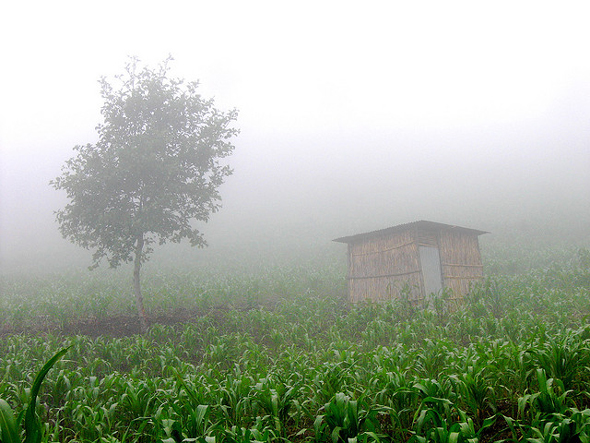-
Elisabeth Rosenthal, The New York Times
As Biofuel Demand Grows, So Do Guatemala’s Hunger Pangs
January 8, 2013 By Wilson Center Staff
The original version of this article, by Elisabeth Rosenthal, appeared in The New York Times.
In the tiny tortillerias of this city, people complain ceaselessly about the high price of corn. Just three years ago, one quetzal – about 15 cents – bought eight tortillas; today it buys only four. And eggs have tripled in price because chickens eat corn feed.
Meanwhile, in rural areas, subsistence farmers struggle to find a place to sow their seeds. On a recent morning, José Antonio Alvarado was harvesting his corn crop on the narrow median of Highway 2 as trucks zoomed by.
“We’re farming here because there is no other land, and I have to feed my family,” said Mr. Alvarado, pointing to his sons Alejandro and José, who are 4 and 6 but appear to be much younger, a sign of chronic malnutrition.
Recent laws in the United States and Europe that mandate the increasing use of biofuel in cars have had far-flung ripple effects, economists say, as land once devoted to growing food for humans is now sometimes more profitably used for churning out vehicle fuel.
In a globalized world, the expansion of the biofuels industry has contributed to spikes in food prices and a shortage of land for food-based agriculture in poor corners of Asia, Africa, and Latin America because the raw material is grown wherever it is cheapest.
Continue reading in The New York Times.
Photo Credit: “About to Rain,” courtesy of flickr user rzperllian (Rachel Zurer).
Topics: Africa, agriculture, Asia, biofuels, development, energy, environment, Europe, food security, foreign policy, gender, land, Latin America, livelihoods, nutrition, poverty, U.S.
 A Publication of the Stimson Center.
A Publication of the Stimson Center.



